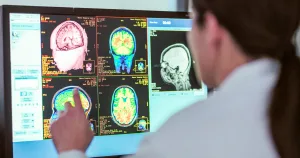Can Processed Foods Accelerate Early Signs of Parkinson’s Disease?
Emerging research suggests a potential link between a diet high in processed foods and the early onset of Parkinson’s disease. Experts are raising concerns about the impact of sugary sodas, packaged snacks, and other highly processed items on neurological health.
Understanding the Potential Link
While the exact mechanisms are still under investigation, several factors may contribute to this connection:
- Inflammation: Processed foods are often linked to increased inflammation in the body, which can negatively affect brain health.
- Gut Microbiome Imbalance: A diet heavy in processed foods can disrupt the balance of bacteria in the gut, potentially impacting brain function via the gut-brain axis.
- Nutrient Deficiencies: Processed foods often lack essential nutrients that are crucial for brain health and may contribute to neurodegenerative processes.
Identifying Processed Foods
It’s important to understand what constitutes a processed food. Generally, these are foods that have been altered from their natural state and often contain added sugars, salts, and unhealthy fats. Examples include:
- Sugary drinks (sodas, juices)
- Packaged snacks (chips, cookies, candy)
- Processed meats (hot dogs, bacon)
- Frozen meals
- Fast food
What You Can Do: Dietary Adjustments
Adopting a healthier diet may help mitigate potential risks. Consider incorporating these strategies:
- Prioritize Whole Foods: Focus on fruits, vegetables, whole grains, and lean proteins.
- Limit Processed Foods: Reduce your intake of sugary drinks, packaged snacks, and fast food.
- Cook at Home: Preparing meals at home allows you to control ingredients and avoid excessive additives.
- Read Labels: Pay attention to nutrition labels and choose products with lower amounts of added sugars, salts, and unhealthy fats.
Final Words
While more research is needed to fully understand the connection between processed foods and Parkinson’s disease, adopting a healthy diet rich in whole foods is beneficial for overall health and may potentially reduce the risk of neurological issues. Consider consulting with a healthcare professional or registered dietitian for personalized advice on dietary changes.




+ There are no comments
Add yours